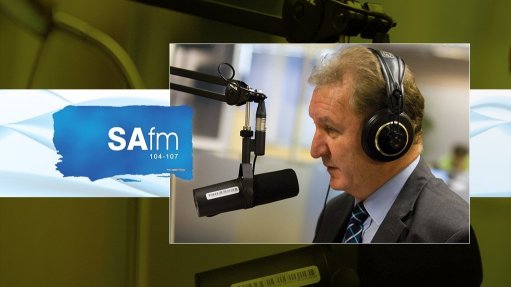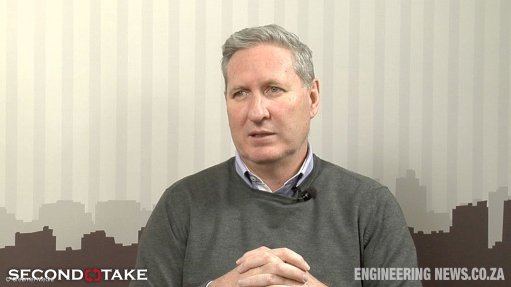Avoid being deceived by economists
The purpose of studying economics is not to acquire a set of ready-made answers to economic questions, but to learn how to avoid being deceived by economists.”
How I wish these prophetic words were mine; this is Joan Robinson’s articulate indictment of economists, which she delivered in a lecture in New Delhi, India, in 1955.
What gives credence to this assessment is that Joan Violet Robinson (nee Maurice) was a British economist who was well known for her wide-ranging contributions to economic theory and for being a central figure in post-Keynesian economics. She was also married to a famous economist.
As financial reporting practice dictates, I declare that I too am a trained economist, with three degrees in the disciple, and that I have worked as an economist and lectured in economics at university at both pre- and postgraduate level. It is fair to say that I have a more-than-average understanding of economics. But most importantly, I know economists. You might well say that “it takes one to know one”.
I had barely finished writing last week’s column – my keyboard was not even cold (I am not sure what has replaced ‘the ink was not even dry’ – when the all too familiar news broke.
As I heard the news, I instantaneously recalled the opening lyrics of my favourite U2 song: “I can’t believe the news today; Oh, I can’t close my eyes; And make it go away; How long? How long must we sing this song? How long, how long . . .”
This is not the first time that I have written about what can only be called a perpetuating lie. Only this time, instead of writing about it in October 2018 – and in doing so maintaining the sequence – I am writing about it in June 2018. I previously wrote about it on October 23, 2015, in an instalment of this column titled ‘Financial economists: mesmerised cheerleaders or compulsive liars?’; on October 14, 2016 (‘Financial economists and the cheerleader effect’); and on October 13, 2017 (‘South Africa falling down a rabbit hole’).
So, what is the ‘it’ that I wrote about? It is the economically unsubstantiated, overoptimistic and exaggerated estimate of South African gross domestic product (GDP) growth. Every year, South Africa’s poor economic performance is simply brushed aside, with the focus shifting to the following year or, crucially, to the year thereafter. Always on an elevated upward trajectory.
On June 5, the South African economy’s growth figures for the first quarter of this year were published; they revealed the largest quarterly fall since the second quarter of 2009. It was the worst performance since the financial crisis. Agriculture plunged 24.2%, mining 9.9%, manufacturing 6.4% and construction 1.9%. So much for agriculture being the panacea for South Africa’s problems that would ensure future prosperity.
The ‘trusted’ economists were expecting a quarter-on-quarter contraction of only 0.5%; instead, a 2.2% contraction materialised. GDP growth came in at 0.8%, compared with the first quarter of 2017, which is not even half the ‘trusted’ economists’ forecast of 1.9%. But even this served as no wake-up call to them. If anything, they cling onto the sentiment best expressed by Timbuk 3 in the song The Future’s So Bright, I Gotta Wear Shades.
Shortly after the news broke, Fitch Rating was expected to release its credit rating of South Africa. Undoubtedly, it will align itself with S&P Global Ratings and Moody’s Corporation, with these agencies’ sentiments echoing those of the ‘trusted’ South African financial institutional economists. All this is reminiscent of the psychiatric syndrome folie à plusieurs (French for ‘madness of several’), about which I wrote it in the column published on June 8, which was titled ‘Madness of two, or madness of several?’
If anything, South African economists and, for that matter, economists who favourably report on South Africa’s supposed bright economic future, are, at best “Mad, bad and dangerous to know”, as the album by that name, by Dead or Alive, a favourite band of mine during my youth, reminds.
Comments
Press Office
Announcements
What's On
Subscribe to improve your user experience...
Option 1 (equivalent of R125 a month):
Receive a weekly copy of Creamer Media's Engineering News & Mining Weekly magazine
(print copy for those in South Africa and e-magazine for those outside of South Africa)
Receive daily email newsletters
Access to full search results
Access archive of magazine back copies
Access to Projects in Progress
Access to ONE Research Report of your choice in PDF format
Option 2 (equivalent of R375 a month):
All benefits from Option 1
PLUS
Access to Creamer Media's Research Channel Africa for ALL Research Reports, in PDF format, on various industrial and mining sectors
including Electricity; Water; Energy Transition; Hydrogen; Roads, Rail and Ports; Coal; Gold; Platinum; Battery Metals; etc.
Already a subscriber?
Forgotten your password?
Receive weekly copy of Creamer Media's Engineering News & Mining Weekly magazine (print copy for those in South Africa and e-magazine for those outside of South Africa)
➕
Recieve daily email newsletters
➕
Access to full search results
➕
Access archive of magazine back copies
➕
Access to Projects in Progress
➕
Access to ONE Research Report of your choice in PDF format
RESEARCH CHANNEL AFRICA
R4500 (equivalent of R375 a month)
SUBSCRIBEAll benefits from Option 1
➕
Access to Creamer Media's Research Channel Africa for ALL Research Reports on various industrial and mining sectors, in PDF format, including on:
Electricity
➕
Water
➕
Energy Transition
➕
Hydrogen
➕
Roads, Rail and Ports
➕
Coal
➕
Gold
➕
Platinum
➕
Battery Metals
➕
etc.
Receive all benefits from Option 1 or Option 2 delivered to numerous people at your company
➕
Multiple User names and Passwords for simultaneous log-ins
➕
Intranet integration access to all in your organisation


















